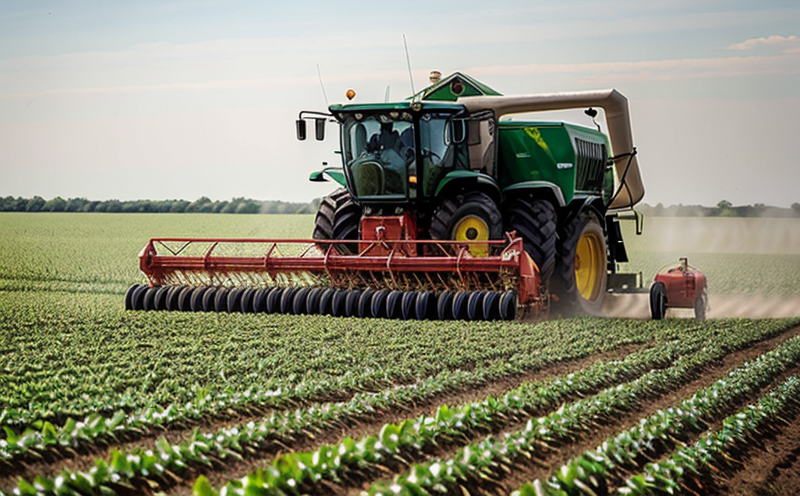Crop Yield Measurement Testing
Understanding crop yield is crucial in agriculture and forestry testing. The process of measuring crop yield involves a series of technical assessments aimed at providing accurate data on the productivity of agricultural products. This service plays a vital role in ensuring that crops are grown efficiently, harvested optimally, and processed to meet market demands.
The measurement of crop yields is not just about counting heads of grain or fruit; it involves complex processes that take into account environmental factors such as soil quality, water availability, climate conditions, and genetic variability. The aim is to provide precise data that can be used for decision-making in agricultural management, planning future crops, and optimizing resource allocation.
In the context of agriculture and forestry testing, crop yield measurement involves several key steps:
- Preparation of Specimens: Proper sampling is critical. This often includes taking representative samples from different parts of a field or forest to ensure that the data collected reflects the overall health and productivity of the area.
- Data Collection: Utilizing advanced technology, including sensors and drones, we collect detailed data on plant growth, biomass production, and other relevant parameters. This information is then used to calculate yield per unit area.
- Analytical Methods: We employ various analytical techniques such as near-infrared spectroscopy (NIRS) for rapid analysis of biomass composition. Additionally, manual inspections are conducted where necessary to ensure accuracy.
- Reporting and Interpretation: The collected data is analyzed using international standards such as ISO 6729:1987 for grain yield estimation. Reports provide insights into past performance and recommendations for future practices.
The precision of crop yield measurement testing is paramount, especially given the variability in agricultural environments. By leveraging advanced technology and adhering to strict protocols, we ensure that our measurements are reliable and actionable. This service not only aids in improving current operations but also supports sustainable farming practices.
Industry Applications
Crop yield measurement testing finds application across various sectors within agriculture and forestry. Quality managers can use this data to enhance production efficiency, while compliance officers ensure regulatory standards are met. R&D engineers benefit from this information in developing new crop varieties that are more resistant to environmental stresses.
For example:
- Agricultural Research: Researchers use yield data to study the effects of different fertilizers and irrigation methods on plant growth. This helps in identifying sustainable agricultural practices.
- Forestry Management: Foresters measure tree growth rates and wood volume to plan harvests sustainably.
- Precision Agriculture: Farmers utilize yield maps generated from our testing to apply inputs like water, fertilizer, and pesticides more precisely, thereby reducing costs and increasing efficiency.
International Acceptance and Recognition
The crop yield measurement service is widely recognized globally for its accuracy and reliability. It adheres to international standards such as ISO 6729:1987, which provides guidelines for grain yield estimation, ensuring consistency across different regions.
Our methodologies have been validated through numerous projects in Europe, North America, South America, Asia, and Africa. Compliance with these standards ensures that the results are accepted by regulatory bodies worldwide, enhancing credibility and trust among stakeholders.
Use Cases and Application Examples
- Crop Variety Trials: Testing new crop varieties in controlled environments to assess their yield potential. This helps breeders identify high-yielding strains suitable for various climatic conditions.
- Climate Change Adaptation Studies: Monitoring the impact of changing climate patterns on agricultural productivity through regular yield assessments.
- Water Use Efficiency: Measuring how efficiently water is used in irrigation systems to maximize crop yields while conserving resources.
- Organic Farming Practices: Evaluating the effectiveness of organic farming techniques on overall crop productivity compared to conventional methods.





